departments
Dhanvantri School, run by CWT rehabilitates specially-abled children.
Over the two and a half decades, this school has significantly impacted the lives of children with special needs through its unique training and educational programs. These programs not only recognize the individual capabilities of these children but also provide them with the support needed to lead independent lives.
This modern school, spanning 18,000 square feet, is specifically designed to cater to the educational and vocational training needs of handicapped children.
The school arranges transportation to pick up children from various locations and bring them to school for their education and vocational training.
The School is dedicated to the comprehensive rehabilitation of children with various disabilities, such as Cerebral Palsy, Autism, Down syndrome, and Multiple Disabilities.
Upon admission, a panel of experts, including a Psychologist, Special Educator, Physiotherapist, Speech therapist, and Occupational therapist, assesses each child’s needs, and tailored therapy programs are designed accordingly.
These programs encompass a range of therapies, including sensory integration therapy, music therapy, hydrotherapy, and more.
The progress of each child is rigorously reviewed every six months, and adjustments are made to their therapy programs as needed. This protocol ensures that all children in the program receive the necessary support to achieve their desired outcomes in the upcoming quarter.
Our department proudly supports many students with varying degrees of hearing loss, ranging from mild to profound.
These students follow the Gujarat State board curriculum up to the eighth grade and are subsequently integrated into mainstream schools.
Our teaching approach emphasizes total communication.
The Intellectually Impaired department currently serves children who present a range of neurodevelopmental challenges and exhibit varying degrees of intellectual disability, ranging from mild to profound.
Our comprehensive approach combines special education programs with a variety of therapeutic interventions.
Children who have been identified as having delayed developmental milestones are actively engaged in our early intervention program, administered by our department.
Our goal is to provide a comprehensive and supportive environment that promotes the growth and development of every child in our care.
Children identified on the autism spectrum are actively participating in our early intervention initiative, overseen by our department.
Our objective is to create a comprehensive and nurturing setting that fosters the growth and development of each child under our supervision. We also work on Thought and Behaiviour Modification and improving social skills.
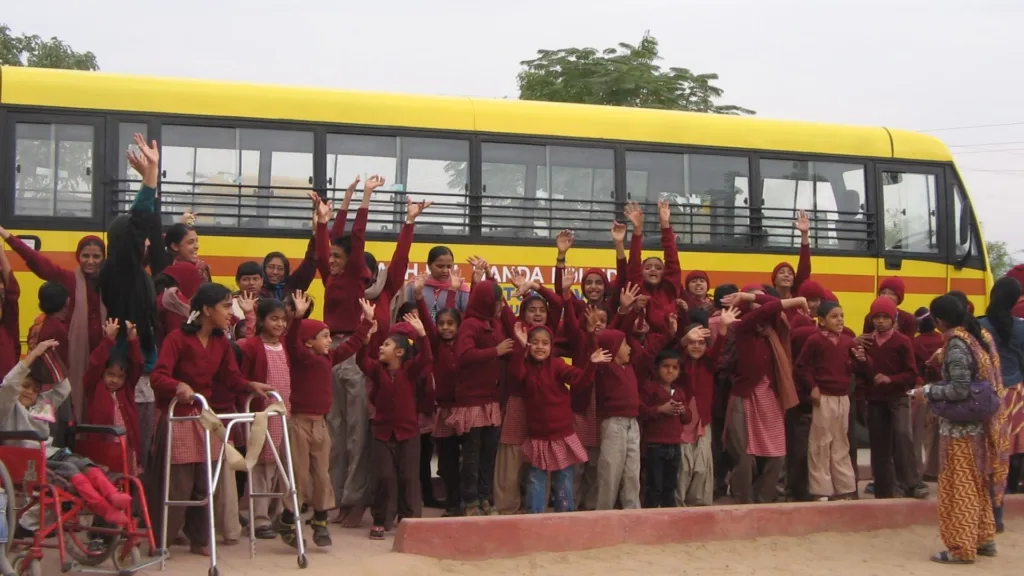
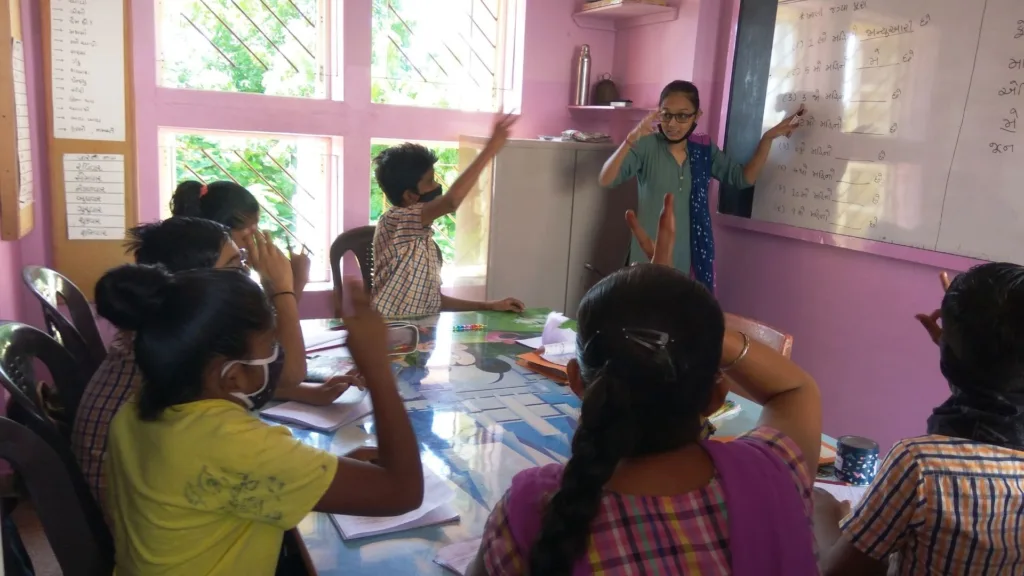
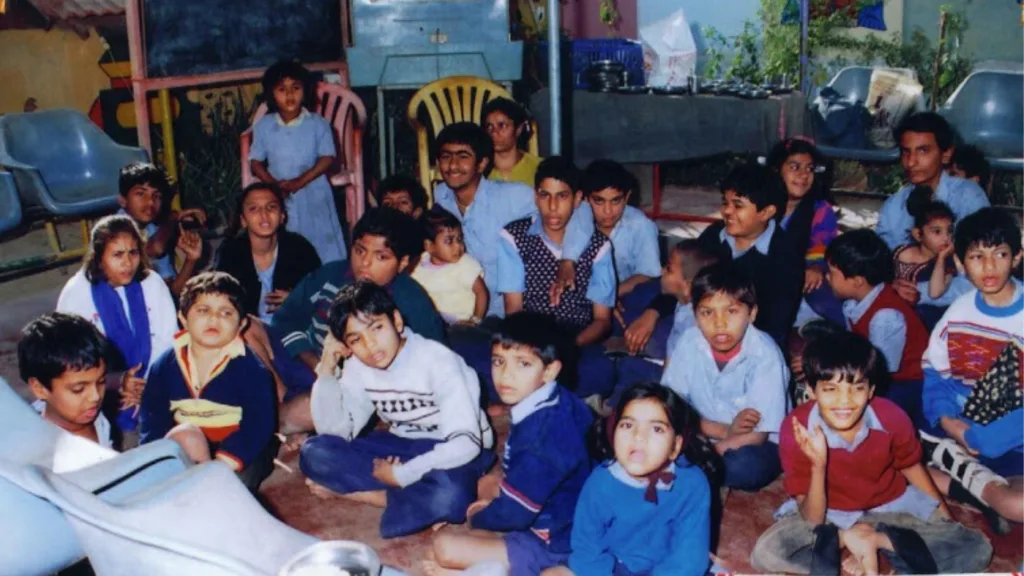

Here are the key components of their program:
- Medical, Mental, and Physical Assessment: Comprehensive assessments are conducted upon admission to evaluate the child’s medical, mental, and physical condition.
- Family Background Study: The school conducts visits to study the family background of the children to better understand their home environment and support needs.
- Appropriate Treatment and Methodologies: Tailored treatment plans and educational methodologies are developed to meet the specific needs of each child.
- Muscular Facial Release (MFR): MFR therapy is provided to address muscular and facial issues.
- Physiotherapy: Physiotherapy is used to improve physical mobility and function.
Occupational Therapy: Occupational therapy helps children develop skills for daily life activities. - Speech Therapy: Speech therapy focuses on improving communication skills.
- Teaching of ADL (Activities of Daily Life): Children are taught essential life skills for daily living.
- Dancing and Singing Classes: Creative and expressive arts like dancing and singing are incorporated into the program.
- Specially Involved Methods of Reading and Writing Skills: Unique approaches are used to teach reading and writing skills to cater to individual needs.
For children with Sensory Motor Integration (SMI) challenges:
- Grouping by Severity: Children are categorized into groups based on the severity of their condition, whether mild, moderate, or severe.
- Vocational Training and Placement: Vocational training programs are offered to equip children with skills for potential employment.
- Gardening: Gardening activities are included to promote sensory motor integration.
- Audiogram and Hearing Aid Fitting: Audiograms are conducted, and tailor-made hearing aids are provided to those with hearing impairments.
Speech Language and - Total Communication: Techniques for effective speech and communication are taught, including total communication methods.
- Social Integration: Efforts are made to socially integrate these children into regular schools and promote inclusion.
Overall, the Child Welfare School focuses on the holistic development and empowerment of children with special needs, aiming to enhance their quality of life and integration into society.
The Hearing Impaired (HI) Department
The Hearing Impairment Department was established in 1996, initially serving two children with profound and severe hearing impairments. Over time, its focus expanded from teaching to encompass the assessment of hearing impairments. In the year 2000, we initiated an early intervention program catering to four children aged 3 to 4 years. Our dedicated team of teachers underwent specialized training to effectively educate the hearing impaired.
In 2001, our school faced a significant setback when it was struck by an earthquake, halting our progress due to the lack of infrastructure. Thanks to the tireless efforts of our Founder Trustee, Dr. Shantuben Patel, we managed to revive the early intervention work. The first child was successfully integrated into our program in 2003, paving the way for several others to follow suit.
Today, our department proudly supports 53 students with varying degrees of hearing loss, ranging from mild to profound. These students follow the Gujarat State board curriculum up to the eighth grade and are subsequently integrated into mainstream schools. Our teaching approach emphasizes total communication.
In addition to the standard curriculum, we actively encourage our students to engage in a wide range of co-curricular activities, including self-defense, art and craft, mud art, music, and dance. Meditation plays an integral role in our school activities, where children are taught mindfulness meditation techniques based on ancient Indian practices.
Looking ahead, our vision is to establish a vocational training unit specifically tailored for hearing-impaired children, further enriching their educational journey and preparing them for a brighter future.
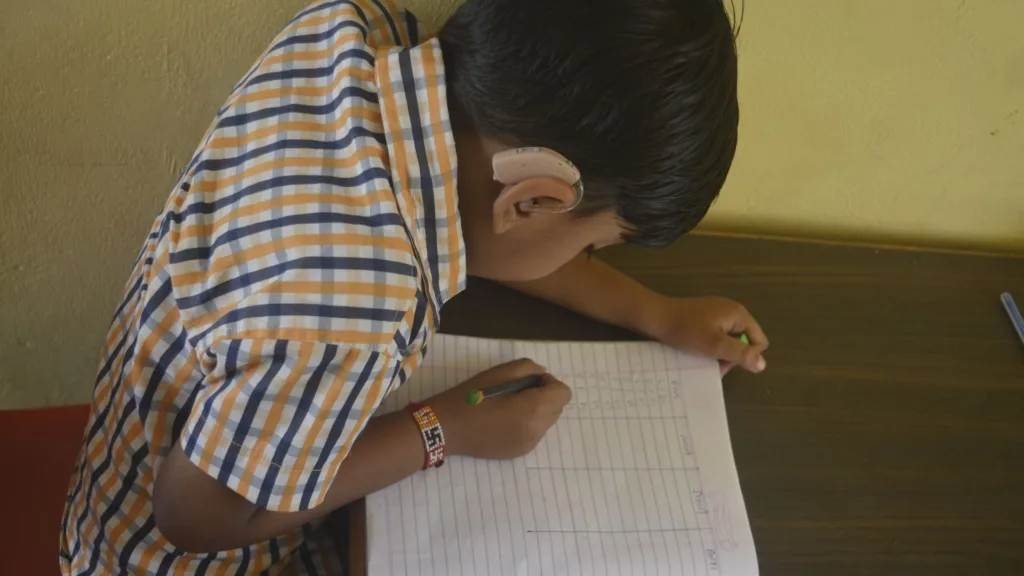


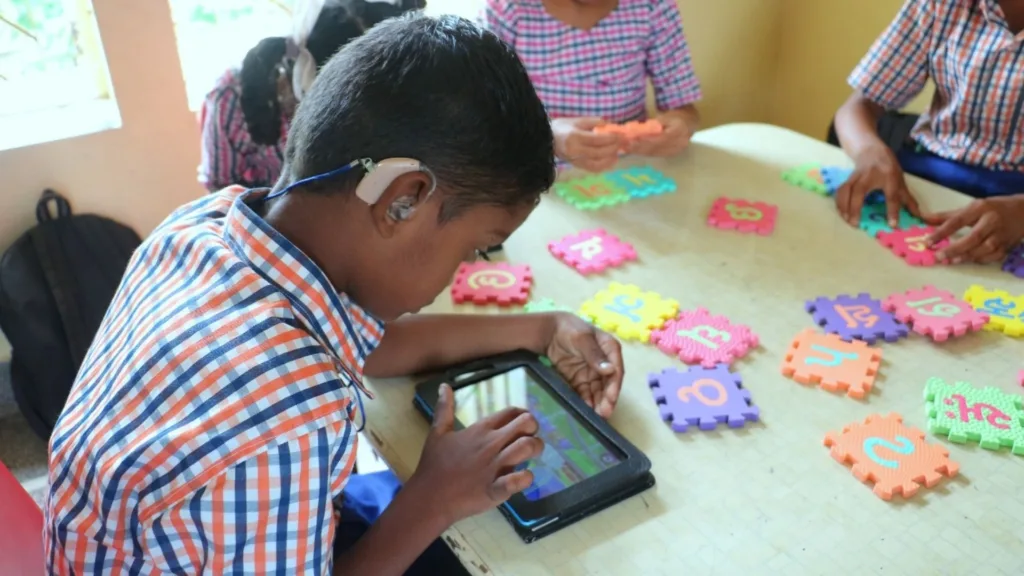

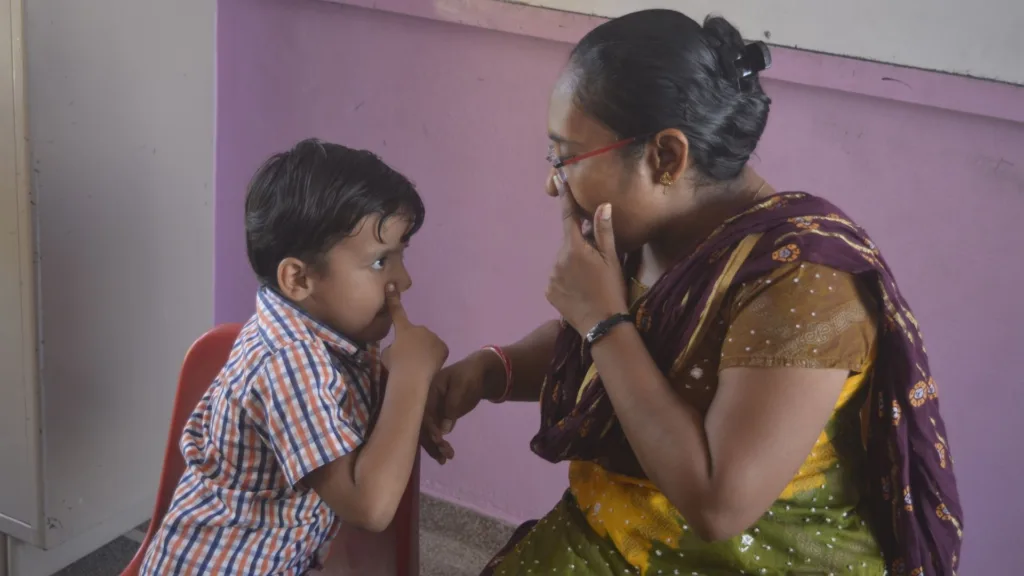
The Intellectually Impaired Department
The Intellectually Impaired department currently serves 60 children who present a range of neurodevelopmental challenges and exhibit varying degrees of intellectual disability, ranging from mild to profound. Our comprehensive approach combines special education programs with a variety of therapeutic interventions.
Through our Mother Training Program, we focus on teaching children essential daily living skills. Simultaneously, we prioritize social skills development as a key component of our curriculum. To ensure the best outcomes for our students, we also implement behavior modification plans under the close supervision of trained professionals.
Furthermore, we extend our support to parents by offering psychoeducation and counseling on a regular basis. Our holistic approach aims to provide the necessary tools and resources to both children and their families, fostering a supportive and nurturing environment for their development and growth.
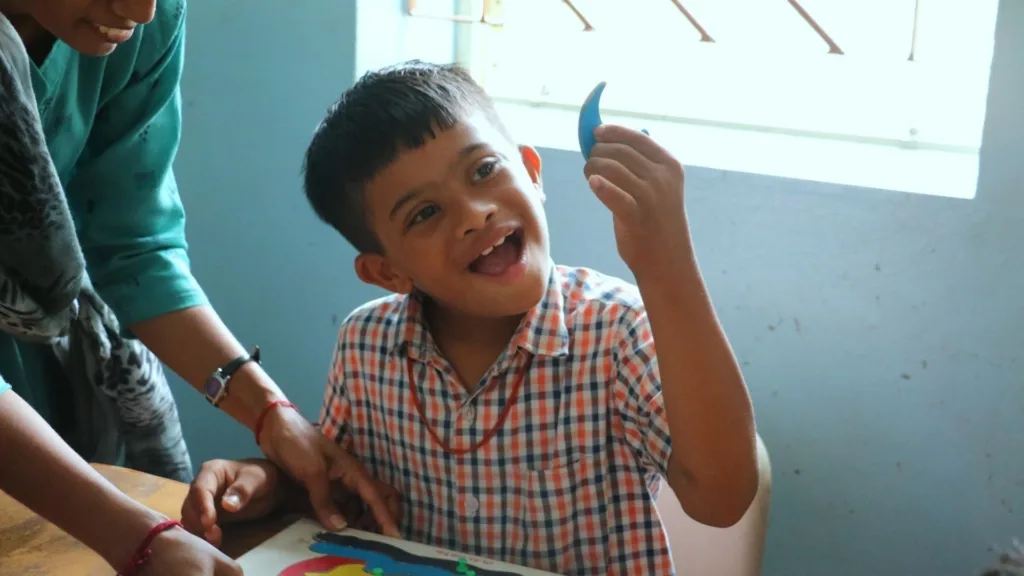
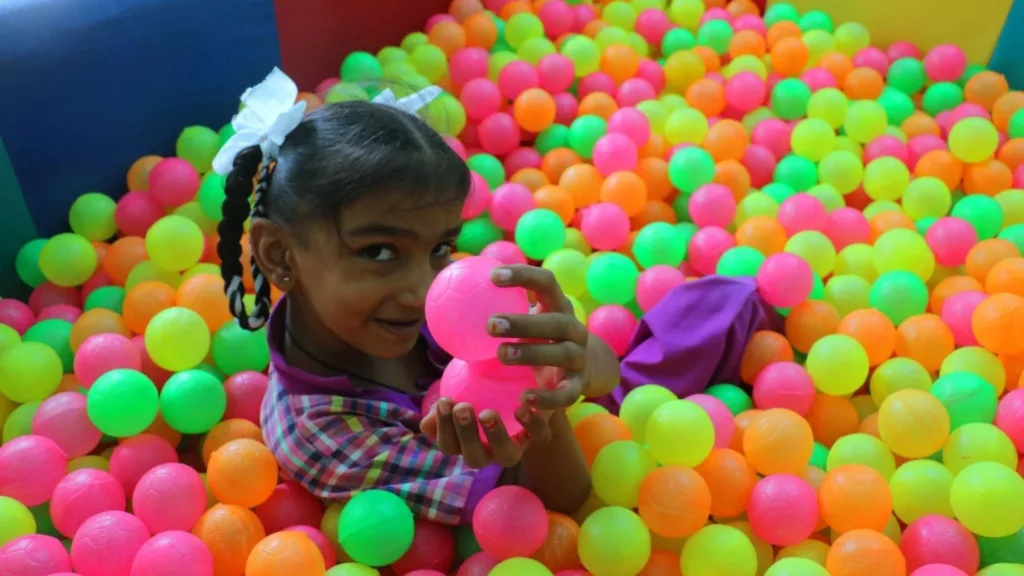

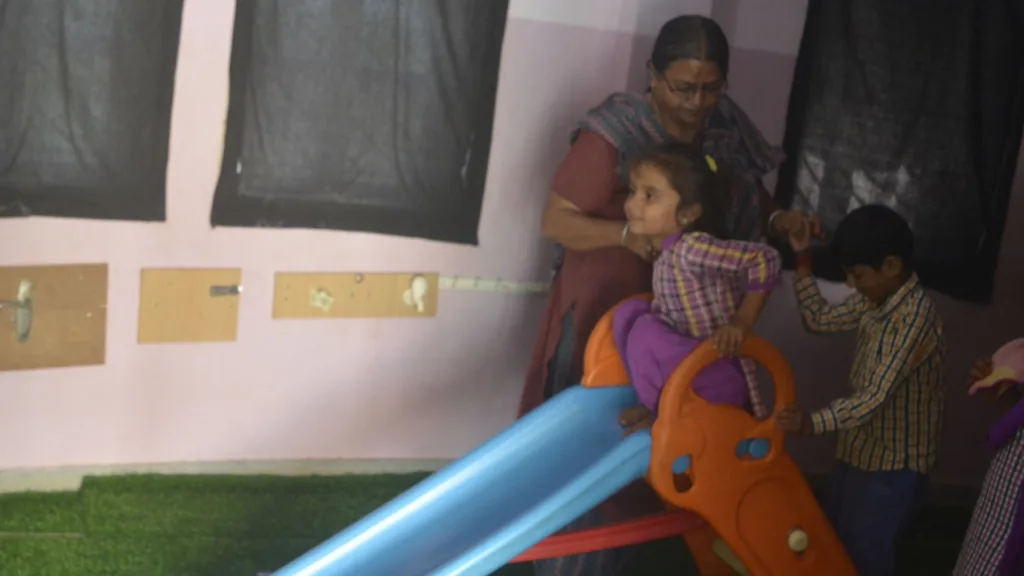
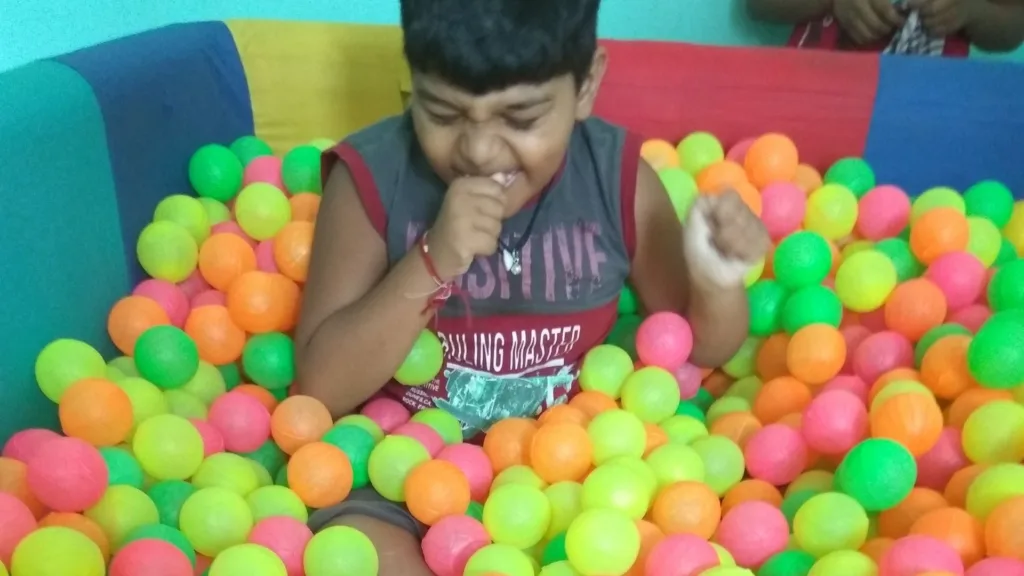

Cerebral Palsy
Children who have been identified as having delayed developmental milestones are actively engaged in our early intervention program, administered by our department. As part of this program, these children undergo a thorough neuro-developmental assessment and receive essential physiotherapy to address their specific needs.
Additionally, we provide oromotor exercises to help enhance their oral motor skills. Our commitment to holistic development also includes sensory motor integration therapy, which utilizes SMI kits to stimulate sensory and motor functions.
To further support the children’s comfort and mobility during school hours, we supply special appliances as needed, such as footwear, walkers, wheelchairs, and sitting aids. We believe in empowering parents and, therefore, offer training on how to effectively use toilet training aids and feeding appliances when caring for their children.
In the classroom, we tailor our educational approach to meet each child’s unique requirements through individualized educational plans based on their special educational needs. Our goal is to provide a comprehensive and supportive environment that promotes the growth and development of every child in our care.


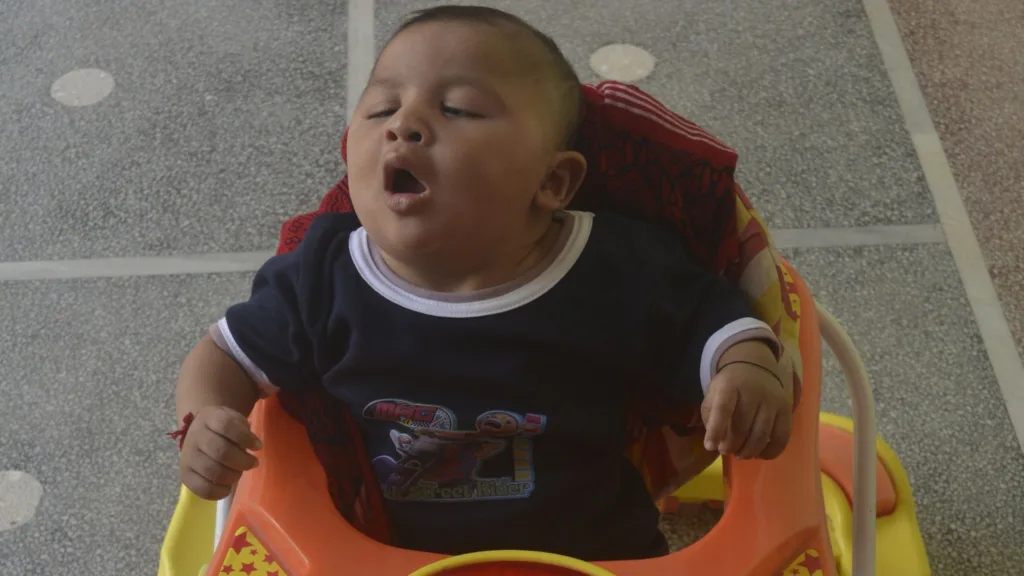

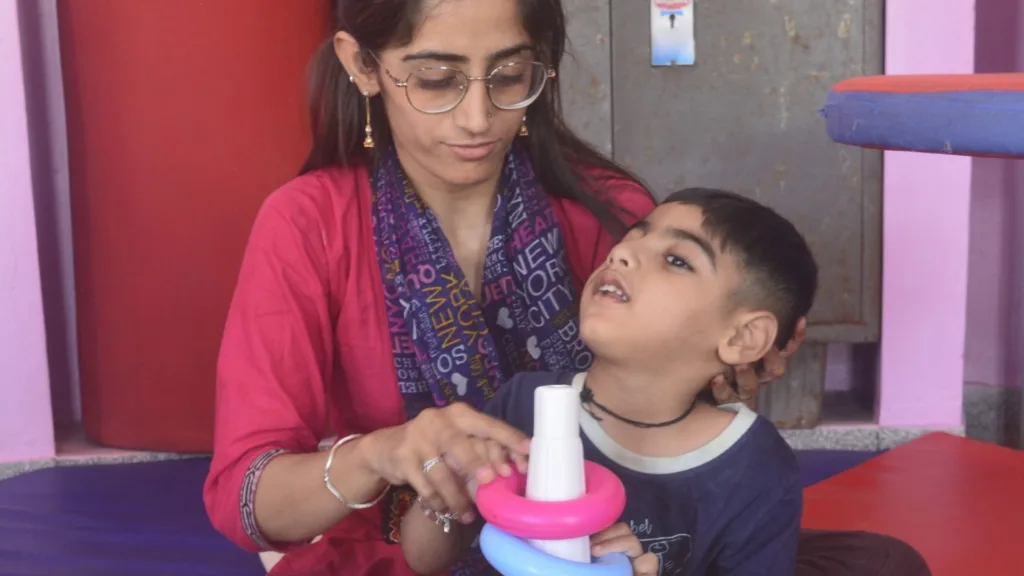

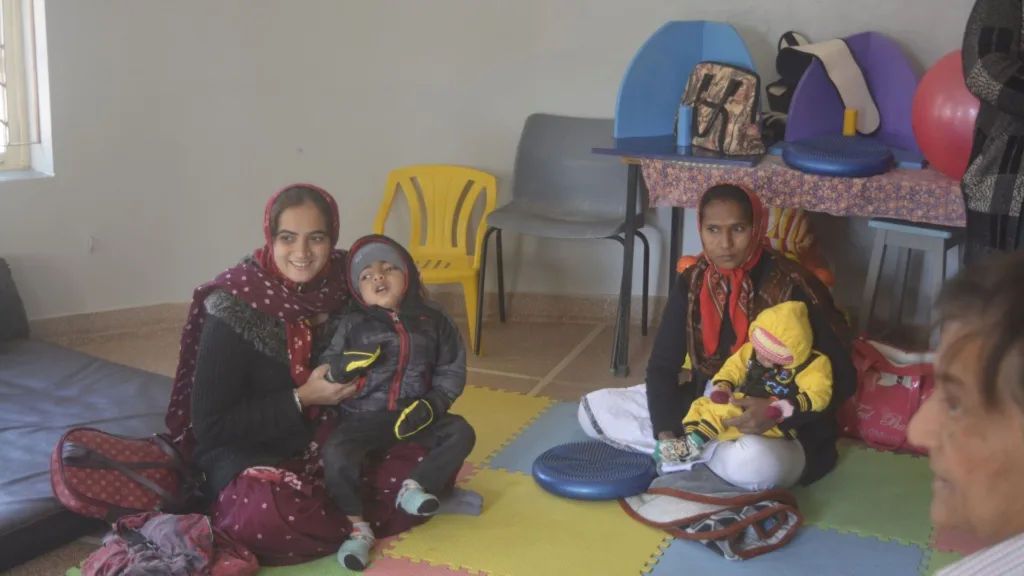
Autism
Autism is a lifelong developmental disability caused due to neurological disorder of the brain. It affects the Social and Communicative skills of a person.
The areas of impairment are:
- Language and Communication
- Social Interactions
- Thought and Behaiviour
Children identified on the autism spectrum are actively participating in our early intervention initiative, overseen by our department. Our objective is to create a comprehensive and nurturing setting that fosters the growth and development of each child under our supervision.
Our Department for Autism works though Educating Children with Autism helping them increase communication, looking, waiting, toleration of proximity, self-care skills, academic learning, etc. We also work on Thought and Behaiviour Modification and improving social skills.
Make a Difference
Your Voice Matters
We’re here to assist you in any way we can. Whether you have questions, feedback, or would like to get involved with our mission, please don’t hesitate to reach out.
